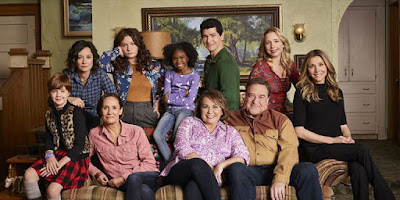the girls i grew up with and the women of the year(s)
My predecessor at work just had a baby; this morning I did
the math and realized that she must have been in her first trimester
when she left to start a freelance career. Inexplicably (or totally explicably,
if you have access to my therapist’s notes from the last eight years) this revelation
filled me with rage, despite the fact that she has been nothing but generous to
me, and I almost never see her.
When she departed, she left a 20-page, impeccably organized
legacy document with links to relevant spreadsheets. When I
spoke with her on the phone the day before her due date, she said she’d had her
hospital bag packed since her second trimester. She’s that kind of person, the kind who makes a brilliant plan and sticks to it. My boss often gets wistful about the
good old days of her, and that doesn’t help my feelings of inadequacy.
According to my messed-up brain, my predecessor is living a
better version of my life, and I’m slopping along behind, splashing in the
rainwater in her footprints. Therefore she is my new arch nemesis. (Sorry,
Hillary Toomey.) Never mind the fact that, if my life had gone
according to plan, I never would have met AK, let alone Dash.
*
 |
| In one of the best storylines, New Becky plays a woman living a posh version of Old Becky's life. |
 |
| Fewer Beckys, more scrunchies. |
The new Roseanne killed
off Mark, Becky’s high school boyfriend/husband, and Fuller House killed off DJ’s husband, leaving her available to
rekindle a flirtation with her boring high school boyfriend Steve. Maybe it’s
telling of the shows’ differences—in social class and commitment to
reality—that the tragedy in Becky’s life has left her with commitment issues
and a dead-end job, whereas DJ is left with three cute kids, a career as a
veterinarian, and the opportunity to rejoin an idyllic home life. Even though,
in both cases, I’m pretty sure the writers killed off the husbands for casting
reasons.
 |
| Fuller House has also added one character of color; you can tell because she periodically points out that the Tanners are white. That is what POC do on TV--tell white characters they're white. |
*
I walked home from high school most days with Karen Hallett, a fellow
JV cheerleader who was working on a novel in creative writing class about four
high school friends who grow up together and then one of them gets AIDS. I
never read her draft, but—no offense to Karen Hallett—I have my suspicions
about its quality.
Still, there was something about this plotline that lodged
in my brain, and even now, when I’m daydreaming story premises (which I don’t do
as much as I used to because adulthood/bad phone habits/ugh), I tend to come up
with stories about A Group Of High School Friends And How They All Turned Out—a
mix of romance and tragedy, babies and alcoholism. These are not good novels.
They are not my life’s work. But they are my default, and they have a sitcom
quality that pulls in threads of both Full
House and Roseanne.
 |
| Michelle is like, Get me out of this scrunchy-loving backwater. |
*
A few weeks ago, AK and I went to a luncheon celebrating
Congresswoman Judy Chu’s Women of the Year, of whom our very own Suzie Abajian
was one. There were plaques and photo ops and okay pastries. There were folding
chairs and apologetic whispers from Suzie: “It’s like a graduation,” she said.
“Really important and wonderful, but really long.”
It wasn’t, though. The Women of the Year had not only done
vital and largely unsung things for their communities. They’d also all lived
interesting and winding lives, from the Chinese immigrant housewife who became
an advocate for children with disabilities after her daughter was born with
Down Syndrome, to the woman who siphoned food from her job as a nutritionist to
feed civil rights workers in the segregated South.
Suzie, an Armenian who came to the U.S. from Syria as a
tween, has a PhD in education and regularly speaks truth to power in the
friendliest way possible, which helped get her elected to the South Pasadena
school board. She used her time on stage to speak out against the bombing of
Syria, and in favor of education.
Collectively, they were a beautiful lesson in rolling with
the punches and punching back in unexpected ways. They exemplified what happens
when you allow that life is not a sitcom, but you don’t let it break you.



Comments